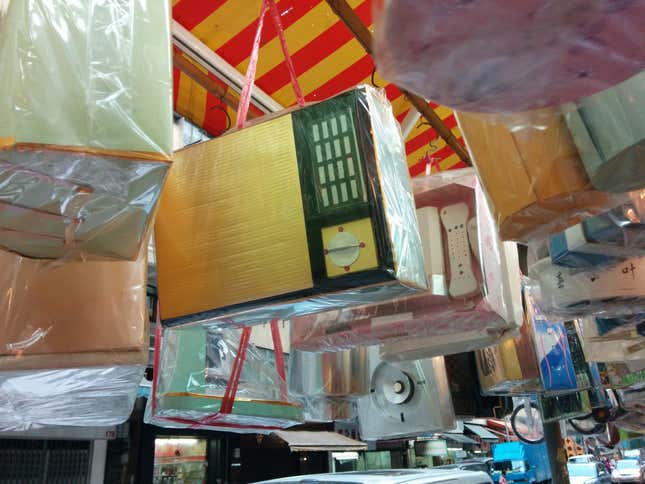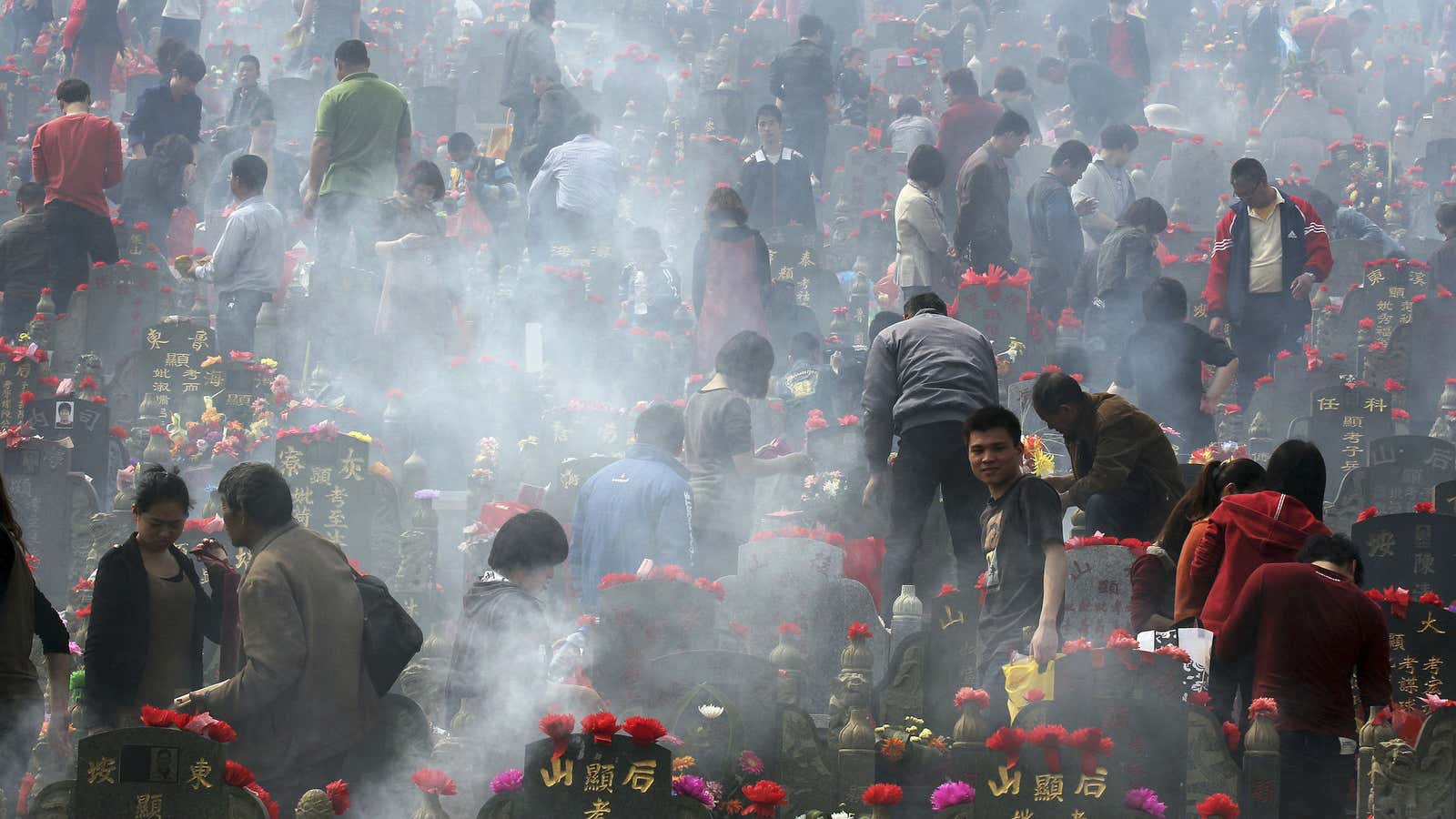Paper replicas of internet routers, passports, subway passes and iPhones were among some of the gifts offered in China to departed loved ones during this weekend’s celebration of Qingming Jie, a day to honor one’s deceased relatives. As younger Chinese play a larger role in the annual holiday known in English as Tomb Sweeping Day, it’s become an occasion to look at what Chinese shoppers are thinking about most.
A key part of ancestor care, one of China’s more enduring traditions, involves taking care of one’s relatives in the afterlife by burning joss paper that serves as “ghost money” and other gifts made out of paper and sometimes plastic. Because the afterlife is thought to mirror the real world, what and how much Chinese residents give their deceased relatives is something of a reflection of trends in the land of the living.
Over the past several years, traditional offerings of money and food have been replaced by burnable paper miniatures of luxury cars and appliances as well as high-end cigarettes and liquor—it would seem that in the afterlife, officials need bribing too. Moreover, the amount of money that is burned has risen from a few dollars to stacks of cash and credit cards, as people worry about inflation (paywall).
This year, internet routers emerged as a new gift—perhaps a testament to China’s quickly expanding population of internet users. A customer told China News Service, ”My grandma never used a computer before, so I bought this for her so she could surf the Internet.” The iPhone was another common offering, as was smartphones from Samsung, Apple’s main competitor in China.
Here are some of the top-selling offerings on China’s largest e-commerce website, Taobao, during this year’s Qingming festival:
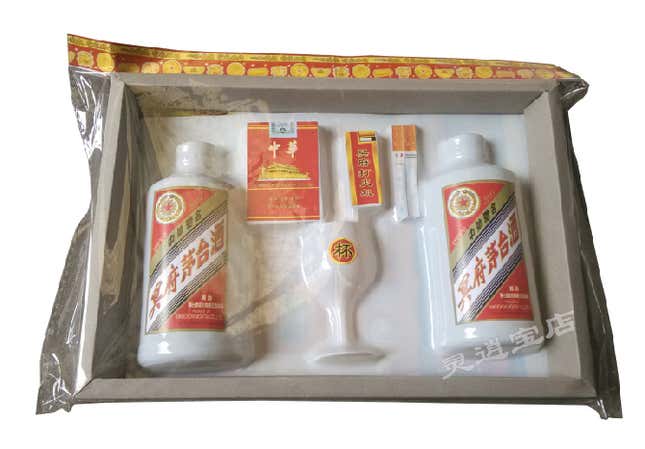
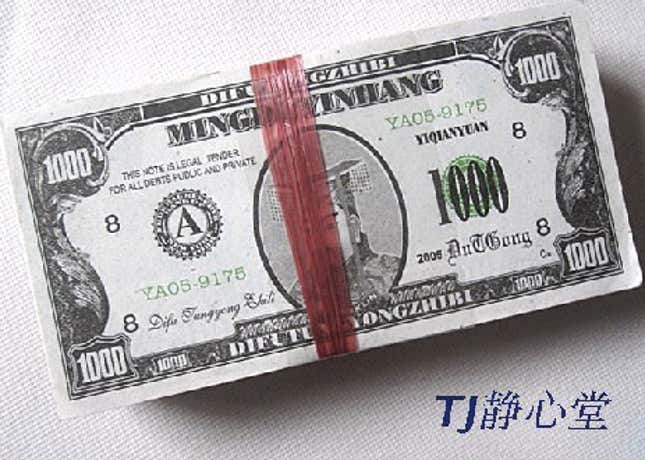
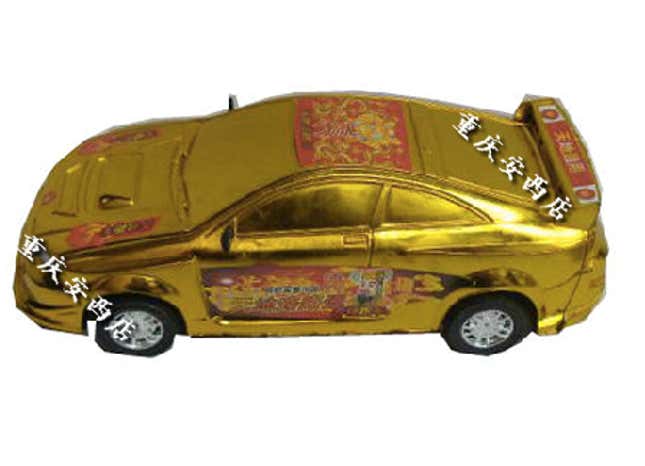
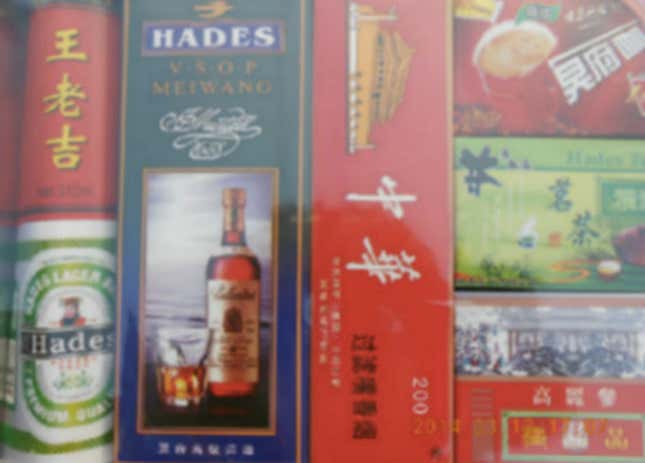
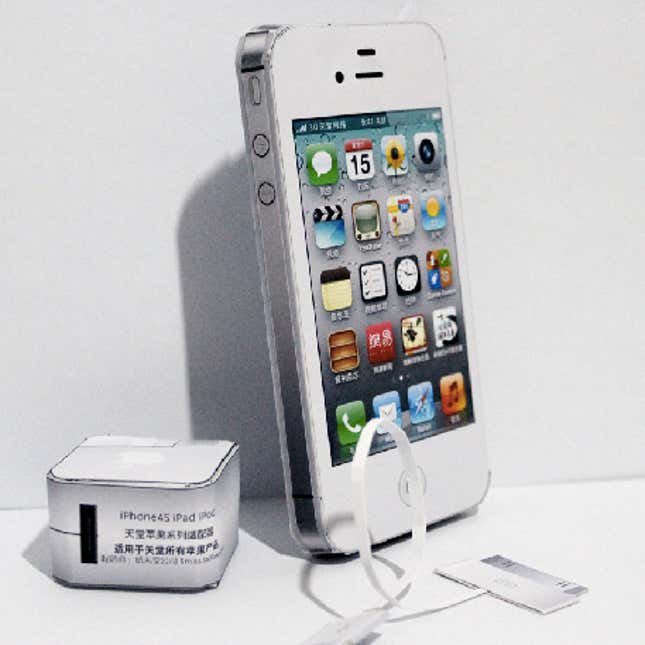
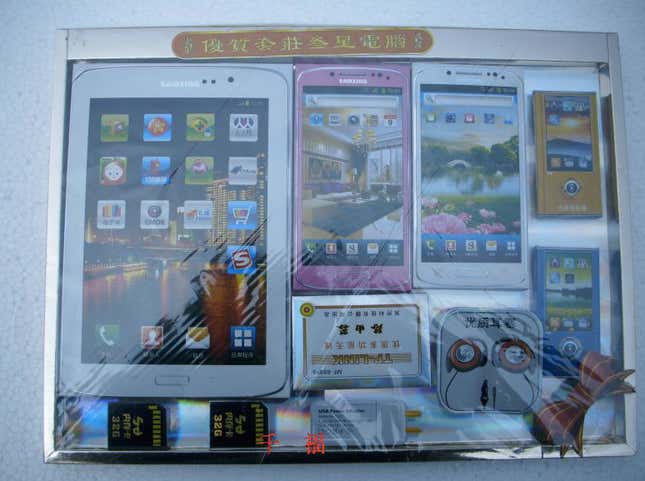
Meanwhile, in Hong Kong, residents could also buy a gift best for those in hotter places in the afterlife: an air conditioner.
